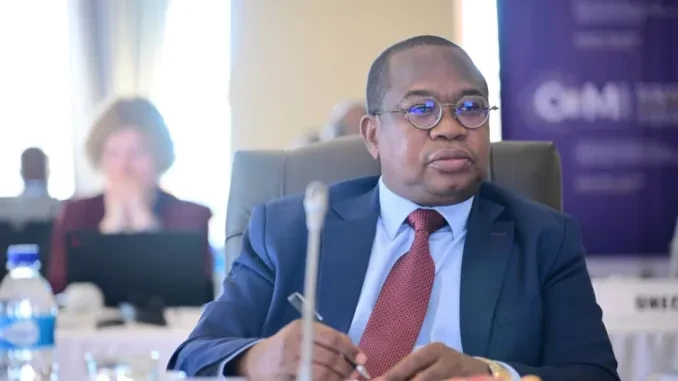
The Reserve Bank of Zimbabwe (RBZ)on Tuesday announced an eight-fold increase in minimum capital requirements to $100 million for commercial banks — a development that critics argue could trigger more bank closures.
RBZ governor Gideon Gono ordered the financial institutions to submit compliance plans by the end of September.
He also announced a phased recapitalisation exercise for the financial services sector, which is expected to be concluded by June 2014.
This means that shareholders of commercial banks operating in the country are now expected to raise $100 million as minimum capital from the current $12,5 million.
Merchant banks, whose current capital requirements stand at $10 million, are now expected to raise $100 million in capital. Gono also raised the requisite capital for building societies to $80 million from $10 million as well as that for microfinance institutions to $5 million from $1 million.
While the moves by the central bank could be well meant, there are fears that these could be too drastic given the liquidity challenges facing the economy.
A case in point is the recent surrender of licences by Genesis Investment Bank and Royal Bank after failing to raise $12,5 million to meet the capital requirements.
There is no doubt that protection of depositors should come first, but certainly not at the expense of bank closures.
- Chamisa under fire over US$120K donation
- Mavhunga puts DeMbare into Chibuku quarterfinals
- Pension funds bet on Cabora Bassa oilfields
- Councils defy govt fire tender directive
Keep Reading
True the country might be overbanked, but we do not think that hiking capital requirements to that level is sustainable.
The economy has in the first six months of the year underperformed and these banks operate in the same environment that has seen Finance minister Tendai Biti revise downwards growth projections from 9,4% to 5,6%.
Although there has been some recovery in the economy, it continues to be affected by policy reversals and inconsistencies, indiscipline in the financial sector, deterioration of infrastructure and difficult external sector.
Also of concern to the economy as a whole is the widespread closure of companies, negative impact of sanctions and limited fiscal space.
The global economy, which has been showing recovery signs, is facing renewed threats from the eurozone debt crisis and in our view this would make it even more difficult for local banks to attract foreign direct investment.
Given the obtaining scenario, it boggles the mind how banks like other companies operating in the country are expected to survive.
The low deposit rates obtaining in the banks and high bank charges also make it difficult for banks to attract meaningful long-term deposits.











